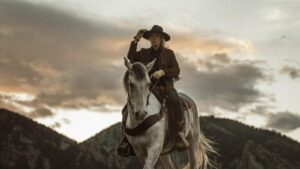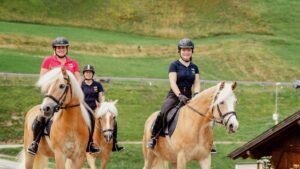Horse riding is a timeless art that has been practiced for centuries, evolving into a variety of styles that each offer a unique experience for both horse and rider. From the elegant precision of dressage to the thrilling agility of show jumping, there is a style to suit every equestrian enthusiast. In this article, we will delve into the world of horse riding styles, unraveling the intricacies and nuances of each discipline to provide a comprehensive understanding of this fascinating sport. Join us on this journey as we explore the diverse and captivating world of horse riding styles in an in-depth look at what makes each one unique.
Exploring the Foundations of Western Horse Riding
From the wild west to modern competitive arenas, the art of horse riding has deep roots in Western culture. Understanding the foundations of Western horse riding involves delving into various styles and techniques that have evolved over centuries. Let’s unravel the diverse world of horse riding styles and gain a deeper appreciation for this timeless equestrian practice.
One of the key elements in Western horse riding is the importance of a strong foundation in horsemanship. Riders must establish a deep bond with their horses, emphasizing communication and trust. By mastering the basic principles of balance, position, and cues, riders can effectively guide their horses through a variety of maneuvers and exercises.
Exploring the different disciplines within Western horse riding reveals a wide range of styles, each with its own unique characteristics and techniques. Whether it’s the precision of reining, the speed of barrel racing, or the grace of cutting, Western horse riding offers something for every equestrian enthusiast. By delving into these various styles, riders can expand their horizons and develop new skills to enhance their riding experience.
The Art of English Equestrianism: A Detailed Analysis
Horse riding has been a longstanding tradition in English culture, with equestrianism considered an art form that requires precision, skill, and grace. There are various styles of horse riding that have developed over the years, each with its own unique techniques and challenges. From dressage to show jumping, each style of English equestrianism requires a deep understanding of the horse and a strong connection between rider and animal.
One of the most popular styles of English equestrianism is dressage, often referred to as “horse ballet.” In dressage, the rider and horse perform a series of intricate movements with precision and grace. The goal is to create a harmonious partnership between horse and rider, showcasing the horse’s natural beauty and athleticism. Dressage requires a high level of concentration, control, and discipline, as the rider must communicate with the horse through subtle cues and movements.
On the other end of the spectrum is show jumping, a fast-paced and thrilling style of English riding that tests the agility and speed of both horse and rider. In show jumping, riders navigate a series of obstacles, including fences and poles, with the goal of completing the course in the fastest time possible without knocking down any obstacles. Riders must have excellent balance, timing, and coordination to successfully navigate the course and clear each obstacle with precision and speed.
Comparing the Nuances of Dressage, Show Jumping, and Eventing
Unraveling Horse Riding Styles: An In-depth Look
When it comes to the world of equestrian sports, there are three main disciplines that stand out: dressage, show jumping, and eventing. Each of these disciplines has its own unique set of nuances that make them distinct from one another.
Dressage:
- Focuses on precision, elegance, and harmony between horse and rider.
- Routine movements are performed in a controlled environment to showcase the horse’s agility and obedience.
- Judged on the execution of movements such as piaffe, passage, and half-pass.
Show Jumping:
- Emphasizes speed, agility, and jumping ability.
- Riders navigate a course of obstacles, including verticals, spreads, and combinations.
- Penalties are given for knocking down rails, refusals, and exceeding the time limit.
Eventing:
- Combines dressage, cross-country, and show jumping into one competition.
- Tests the horse and rider’s versatility, athleticism, and endurance.
- Requires strong partnerships and strategic planning to excel in all three phases.
Important Considerations for Choosing the Right Horse Riding Style
When choosing the right horse riding style, there are several important considerations to keep in mind. One key factor to consider is your riding experience level. Whether you are a beginner or an advanced rider, there are styles that will suit your skills and comfort level. It is essential to choose a riding style that matches your experience to ensure a safe and enjoyable ride.
Another important consideration is the type of riding you plan to do. Are you interested in casual trail riding, competitive show jumping, or the grace of dressage? Each riding style requires specific skills and techniques, so it’s crucial to choose a style that aligns with your riding goals and interests. Consider what type of riding experience you want to have and choose a style that best fits your goals.
Additionally, consider the temperament and personality of the horse you will be riding. Not all horses are suited for every riding style, so it’s important to match the horse’s abilities and demeanor with the demands of the riding style. Take the time to get to know your horse’s preferences and abilities to ensure a harmonious partnership in your chosen riding style. Making the right match between horse and rider is essential for a successful and enjoyable riding experience.
| Western Riding | Trail riding, cattle work |
| Dressage | Formalized training, precise movements |
| Show Jumping | Jumping obstacles in a competitive setting |
Tips for Mastering Various Techniques in Different Equestrian Disciplines
Whether you’re a novice rider or a seasoned equestrian, mastering various techniques in different disciplines can be both challenging and rewarding. Each style of riding requires unique skills and techniques that riders must practice and perfect. By understanding the fundamentals of each discipline, riders can enhance their riding abilities and excel in their chosen equestrian sport.
Dressage:
- Focus on precision and fluidity in movement
- Develop a strong partnership with your horse
- Practice correct posture and position in the saddle
Jumping:
- Work on developing balance and coordination
- Practice riding lines and distances accurately
- Master the art of timing and rhythm over fences
Key Takeaways
In conclusion, the world of horse riding is as diverse and multifaceted as the horses themselves. From the elegant dressage to the adrenaline-fueled eventing, each style offers a unique and rewarding experience for both rider and horse. By exploring the intricacies of each discipline, we gain a deeper appreciation for the artistry and skill required to master the sport of equestrianism. So whether you prefer the precision of show jumping or the freedom of trail riding, remember that the bond between horse and rider is what truly makes this ancient practice so special. Happy trails and may your journey through the world of horse riding be filled with joy, growth, and unforgettable adventures. Ride on!



